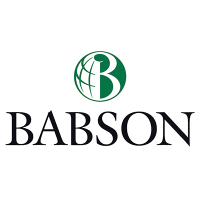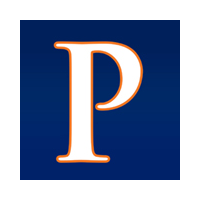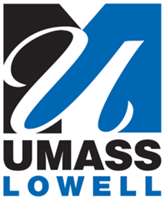What do they do?
Analyze and coordinate the ongoing logistical functions of a firm or organization. Responsible for the entire life cycle of a product, including acquisition, distribution, internal allocation, delivery, and final disposal of resources.
Also known as:
Client Services Administrator, Logistician, Production Planner, Supply Management Specialist
-
28.3%
Change
Ranks #37 in job growth rate920Job Openings
Ranks #10 in net job growth
-
Babson College
Wellesley, MA
-
Pepperdine University
Malibu, CA
-
University of Massachusetts-Lowell
Lowell, MA
-
Harvard University
Cambridge, MA
-
Webster University
Saint Louis, MO
Looking for colleges that offer a specific major? Use the College Match Tool to find your best-matched schools and discover your estimated Net Price!
- Doctorate or Professional Degree (1%)
- Master's degree (11%)
- Bachelor's degree (35%)
- Associate's degree (12%)
- Some college, no degree (24%)
- High school diploma equivalent (16%)
- Less than high school diploma (3%)
Most Popular Majors that prepare Logisticians
-
#1
-
Degrees Granted
311,165
-
Female Students
154,898
-
Male Students
156,267
-
Median Starting Salary
$39,500
-
-
#2
-
Degrees Granted
8,898
-
Female Students
3,185
-
Male Students
5,713
-
Median Starting Salary
$39,500
-
-
#3
-
Degrees Granted
3,784
-
Female Students
1,514
-
Male Students
2,270
-
Median Starting Salary
$39,500
-
People in this career often have these skills:
- Critical Thinking - Using logic and reasoning to identify the strengths and weaknesses of alternative solutions, conclusions, or approaches to problems.
- Reading Comprehension - Understanding written sentences and paragraphs in work-related documents.
- Active Listening - Giving full attention to what other people are saying, taking time to understand the points being made, asking questions as appropriate, and not interrupting at inappropriate times.
- Speaking - Talking to others to convey information effectively.
- Monitoring - Monitoring/Assessing performance of yourself, other individuals, or organizations to make improvements or take corrective action.
- Coordination - Adjusting actions in relation to others' actions.
- Complex Problem Solving - Identifying complex problems and reviewing related information to develop and evaluate options and implement solutions.
- Social Perceptiveness - Being aware of others' reactions and understanding why they react as they do.
- Judgment and Decision Making - Considering the relative costs and benefits of potential actions to choose the most appropriate one.
- Active Learning - Understanding the implications of new information for both current and future problem-solving and decision-making.
- Systems Analysis - Determining how a system should work and how changes in conditions, operations, and the environment will affect outcomes.
- Writing - Communicating effectively in writing as appropriate for the needs of the audience.
- Time Management - Managing one's own time and the time of others.
People in this career often know a lot about:
- Transportation - Knowledge of principles and methods for moving people or goods by air, rail, sea, or road, including the relative costs and benefits.
- English Language - Knowledge of the structure and content of the English language including the meaning and spelling of words, rules of composition, and grammar.
- Administration and Management - Knowledge of business and management principles involved in strategic planning, resource allocation, human resources modeling, leadership technique, production methods, and coordination of people and resources.
- Customer and Personal Service - Knowledge of principles and processes for providing customer and personal services. This includes customer needs assessment, meeting quality standards for services, and evaluation of customer satisfaction.
- Mathematics - Knowledge of arithmetic, algebra, geometry, calculus, statistics, and their applications.
- Computers and Electronics - Knowledge of circuit boards, processors, chips, electronic equipment, and computer hardware and software, including applications and programming.
- Economics and Accounting - Knowledge of economic and accounting principles and practices, the financial markets, banking, and the analysis and reporting of financial data.
- Geography - Knowledge of principles and methods for describing the features of land, sea, and air masses, including their physical characteristics, locations, interrelationships, and distribution of plant, animal, and human life.
- Public Safety and Security - Knowledge of relevant equipment, policies, procedures, and strategies to promote effective local, state, or national security operations for the protection of people, data, property, and institutions.
People in this career often have talent in:
- Oral Comprehension - The ability to listen to and understand information and ideas presented through spoken words and sentences.
- Written Comprehension - The ability to read and understand information and ideas presented in writing.
- Oral Expression - The ability to communicate information and ideas in speaking so others will understand.
- Problem Sensitivity - The ability to tell when something is wrong or is likely to go wrong. It does not involve solving the problem, only recognizing that there is a problem.
- Deductive Reasoning - The ability to apply general rules to specific problems to produce answers that make sense.
- Inductive Reasoning - The ability to combine pieces of information to form general rules or conclusions (includes finding a relationship among seemingly unrelated events).
- Information Ordering - The ability to arrange things or actions in a certain order or pattern according to a specific rule or set of rules (e.g., patterns of numbers, letters, words, pictures, mathematical operations).
- Speech Recognition - The ability to identify and understand the speech of another person.
- Speech Clarity - The ability to speak clearly so others can understand you.
- Written Expression - The ability to communicate information and ideas in writing so others will understand.
- Near Vision - The ability to see details at close range (within a few feet of the observer).
- Originality - The ability to come up with unusual or clever ideas about a given topic or situation, or to develop creative ways to solve a problem.
- Fluency of Ideas - The ability to come up with a number of ideas about a topic (the number of ideas is important, not their quality, correctness, or creativity).
People in this career often do these activities:
- Develop business relationships.
- Gather customer or product information to determine customer needs.
- Collect data about customer needs.
- Supervise employees.
- Prepare proposal documents.
- Analyze logistics processes.
- Allocate physical resources within organizations.
- Coordinate logistics or other business operations.
- Present business-related information to audiences.
- Manage operations, research, or logistics projects.
- Confer with personnel to coordinate business operations.
- Report information to managers or other personnel.
- Update professional knowledge.
- Develop business or financial information systems.
- Advise others on analytical techniques.
- Develop financial or business plans.
- Analyze business or financial data.
- Measure effectiveness of business strategies or practices.
- Coordinate regulatory documentation activities.
- Develop training materials.
This page includes data from:

 Occupation statistics: USDOL U.S. Bureau of Labor Statistics Occupational Employment Statistics
Occupation statistics: USDOL U.S. Bureau of Labor Statistics Occupational Employment Statistics
 Videos: CareerOneStop, USDOL/ETA and the Minnesota Department of Employment & Economic Development
Videos: CareerOneStop, USDOL/ETA and the Minnesota Department of Employment & Economic Development









